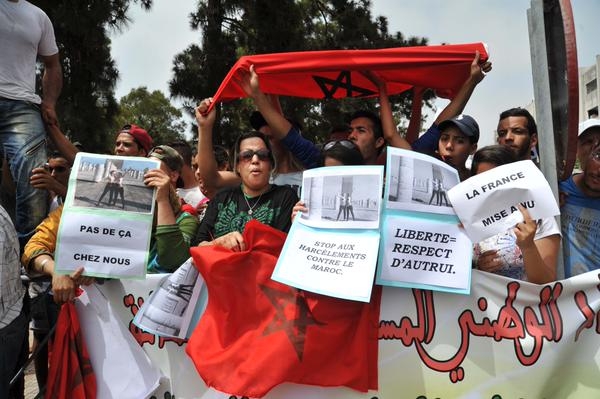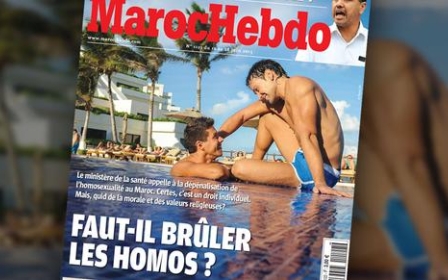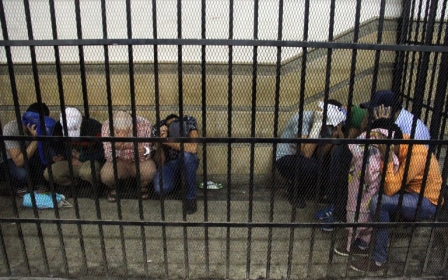Morocco jails men for 4 months for kissing in public: NGOs

Two Moroccan men were jailed for four months Friday for kissing in public, after a string of recent controversies over homosexuality in the conservative Muslim kingdom, said NGO officials who attended the trial.
The men, named as Lahcen, 38, and Mohsine, 25, were convicted of an "affront to public decency" and of an "unnatural act with a person of the same sex," and also fined $52 (500 dirhams) each, the sources said.
Homosexual activity is punishable in Morocco by up to three years in jail and the divisive law - known as Article 489 - has been the subject of several protests, including a recent topless demonstration by feminist group Femen in front of Rabat's famous Hassan Tower.
The men were arrested on 5 June after kissing outside the tower in solidarity with the two French activists from Femen, who were deported after their protest.
Morocco's General Directorate of National Security said the women had "performed an obscene sequence" and were "topless, sporting a slogan that offended public morality".
Images shared on social media showed the women embracing each other with their tops off in front of the landmark minaret.
"In gay we trust" was written in black on the torso of one of them.
A day after the Femen incident, 1,500 people protested against the group outside the French embassy, but it was Lahcen and Mohsine who drew the most headlines after they appeared to kiss each other.
The names of the men and their photographs quickly appeared in local media, and the trial has attracted criticism from rights groups.
The furore over homosexuality in Morocco boiled over last week when weekly magazine Maroc Hebdo was forced to withdraw its latest edition featuring a front cover headline asking: "Should we burn gays?"
The cover showed two young men at a swimming pool, smiling and gazing into each other's eyes.
Maroc Hebdo said it "decided to withdraw” the edition from sale and its website, "given the particularly strong reactions" it caused.
The issue said "homosexuality is, of course, an individual right", but added that debate on the topic had to take into account "moral and religious values".
The cover, first circulated on social media, drew instant criticism, with some commentators chiding it as "homophobic", but with its creators countering that it was intended to provoke debate.
Another French-language weekly, Tel Quel, published an editorial appearing to support the decriminalisation of homosexuality.
"Homosexuals are not deviant nor sick," it wrote. "Consensual love between two adults is not a crime."
Middle East Eye propose une couverture et une analyse indépendantes et incomparables du Moyen-Orient, de l’Afrique du Nord et d’autres régions du monde. Pour en savoir plus sur la reprise de ce contenu et les frais qui s’appliquent, veuillez remplir ce formulaire [en anglais]. Pour en savoir plus sur MEE, cliquez ici [en anglais].




